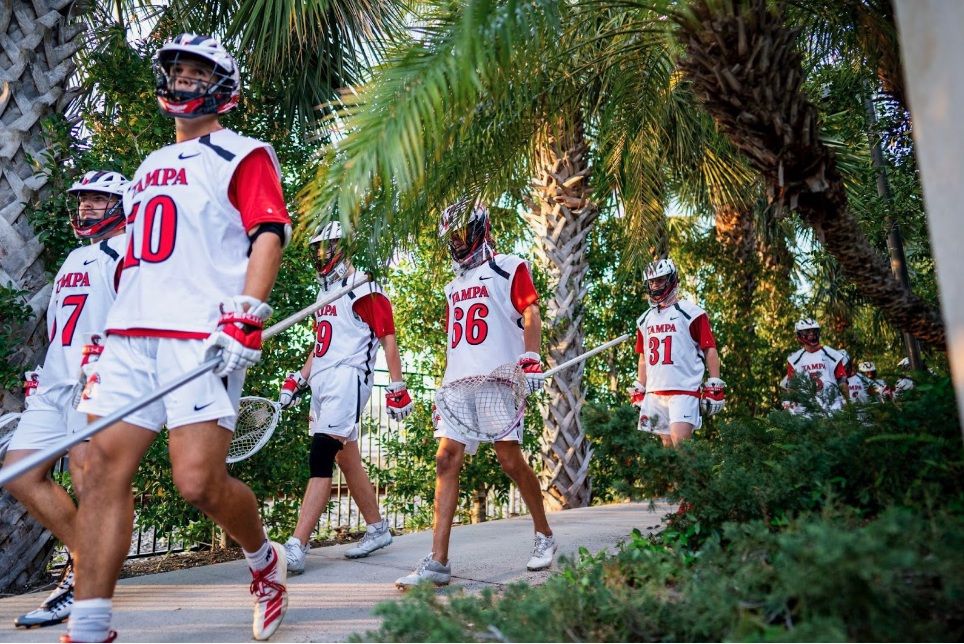 Monnie Wertz
Monnie WertzRecovering from unexpected major hip replacement surgery, instead of researching in Ireland, was not how this aging University of Tampa history professor planned to spend the Summer of 2007!
Happily, the surgery went well. And, with the loving support of many UT colleagues, former students and friends, I got back on my feet – literally – in record time. To test out my new bionics, I then headed to the Smokey Mountains to play my usual August gig with fellow folk musicians in Sylva, North Carolina. As a teacher of Native American history, I also wanted to reconnect with old friends from the Eastern Band of the Cherokee Nation, whose rez lies a few miles up the road.
In small mountain towns like Sylva (pop. 3,500), an event such as the three-day St. John’s Attic Sale is more of a town festival than your ordinary Episcopal church rummage sale. A feature article in The Sylva Herald reminds townspeople of the upcoming sale and attendant festivities. Students returning to Western North Carolina University often furnish their dorm rooms with bargain linens, furniture, small appliances and CDs purchased at this mega-sale. And many poor families from the surrounding hills rely on the annual Attic Sale to stretch their meager budgets for warm clothing, bedding and household utensils, as well as toys, books and games for their children. Town and country folk intermingle easily at this festival, both savoring the food delicacies on offer; this year’s clear favorite: Indian fry bread cooked on site by the Cherokees.
But the real highlight, as always, is the outdoor entertainment provided by the Mountain Spirit Band and friends. Conventional folk instruments — Appalachian dulcimer, hammer dulcimer, banjo, guitar – are augmented by bass fiddle, mandolin, flute and my bowed psaltery. Musicians shelter from the elements – mostly hot sun this year – under tents borrowed from a local funeral home.
Mountain Spirit members come from many walks of life. They include a couple of accountants, a retired Methodist minister, two nurses, a pharmacist, a university professor (moi), an ex- military officer and a retired policewoman-turned-realtor. Two “apprentices” joined us this year, a pair of extraordinarily talented high school boys whose rendition of Dueling Banjos brought down the house. Our tireless director and arranger, Barbara Osment, taught many of us the mountain instruments we now play.
The eclectic program reflects the myriad cultural strands that make up this part of southern Appalachia. Old Time tunes such as “Bile Dem Cabbage Down” and “Ol’ Joe Clark” blend nicely with Bluegrass favorites like “Rocky Top.” Gospel hymns are a must on these occasions and include a rousing version of “Amazing Grace,” enhanced by a fast Cherokee Chorus added to the original John Newton tune by survivors of the Trail of Tears. The now-famous Shaker melody, “Simple Gifts” (a.k.a. “Lord of the Dance”), always receives a warm reception. And, of course, secular English and American folk music gets a thorough airing, much of it brought to these mountains by early settlers making their way down the Appalachian Trail.
My own favorite genre, however, is the large selection of traditional Irish tunes, many dating back to the 18th century Ulster Scots-Irish migration into Appalachia. The nostalgic “Londonderry Air” and “A Farewell to Whiskey” temper livelier foot-tappers such as “Star of the County Down” and “O, Rosin the Bow.” Turlough O’Carolan’s fanciful “Sheebeg-Sheemore” tunefully recounts a war between two fairy armies – Si Beg and Si Mor – in Irish mythology. And, playing “The Road to Lisdoonvarna” brings back happy memories of my very first research trip to Ireland years ago, when I stopped in this historic spa town for a pint at the famous Matchmaker Pub.
This year the festival audience enjoyed a special treat. USF English professor and frequent UT adjunct, Dr. Raymond Vince, joined us with his Martin acoustic guitar (proudly sporting a Martin Guitar cap and a t-shirt that read, “Lord of the Strings”). Dating back to his days in a small rock band in England, Ray also has a stock of popular songs by the Beatles, Simon and Garfunkle, Peter, Paul and Mary, and the Eagles, among others, which he shared with enthusiastic listeners in a couple of solo sets. Incidentally, Prof. Vince is married to our very own UT reference librarian, Jeanne Vince, who suggested he help drive the gimpy historian to North Carolina for the festival.
How does all this relate to our life on a diverse, urban-based campus on the Gulf Coast of Florida? After all, the University of Tampa has a population approaching twice the size of Sylva, and draws from a much wider set of global cultures. UT is a community of scholars, rather than a collection of townspeople engaged in the ordinary pursuits of everyday life. Here we have no mountains; good grief, the closest thing to a hill is the Sunshine Skyway Bridge.
Yet, similarities do exist. We all enjoy good fun, good food and a live concert, whatever the excuse. And music, even low-brow stuff played by amateur folk artists, can inspire and educate, as well as entertain listeners of all ages and locales. More importantly, both places exhibit a strong sense of community based on history, tradition and shared lives. Despite our recent growth, UT retains a “small town” friendliness and intimacy seldom found within large academic institutions; our lives as human beings – whether student, faculty, staff or administrator – still matter to one another.
This on-going reality came home to me in the summer of 2007 as never before. An unofficial UT “team” provided every manner of assistance prior to, during and after my hospitalization. Dubbed “Rynder’s Reconstruction Agents,” they looked after me, my cats, my home and my psyche. In August they saw me safely to the mountains and back. As a result, I am starting the new academic year not only intellectually renewed and physically fit, but also grateful to the university that has been my professional home for 35 years. Thanks, UT!




Leave a Reply